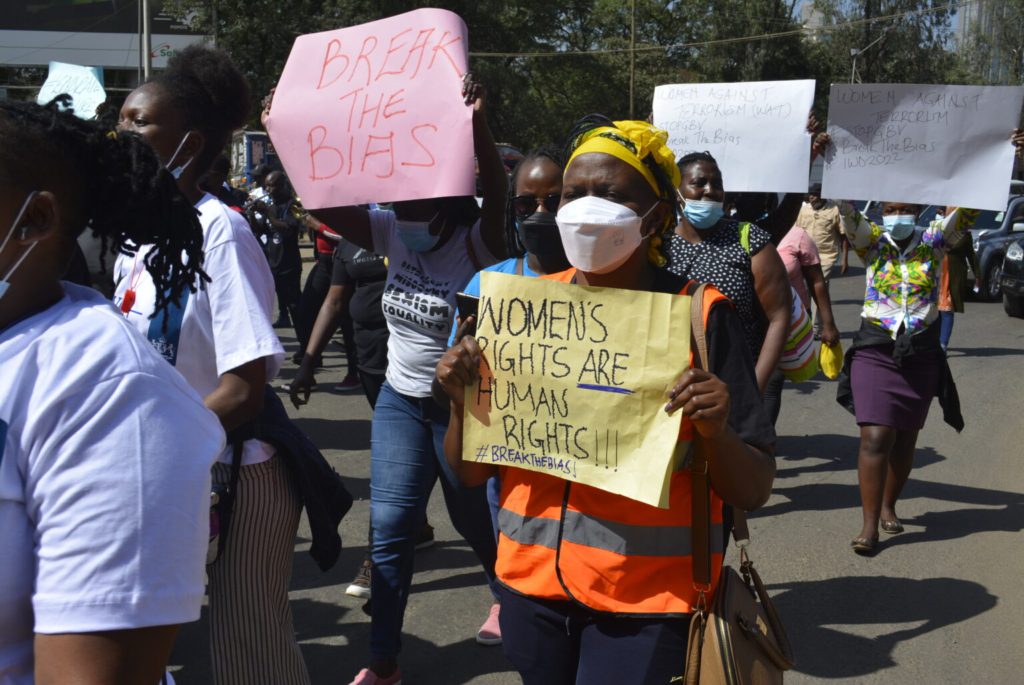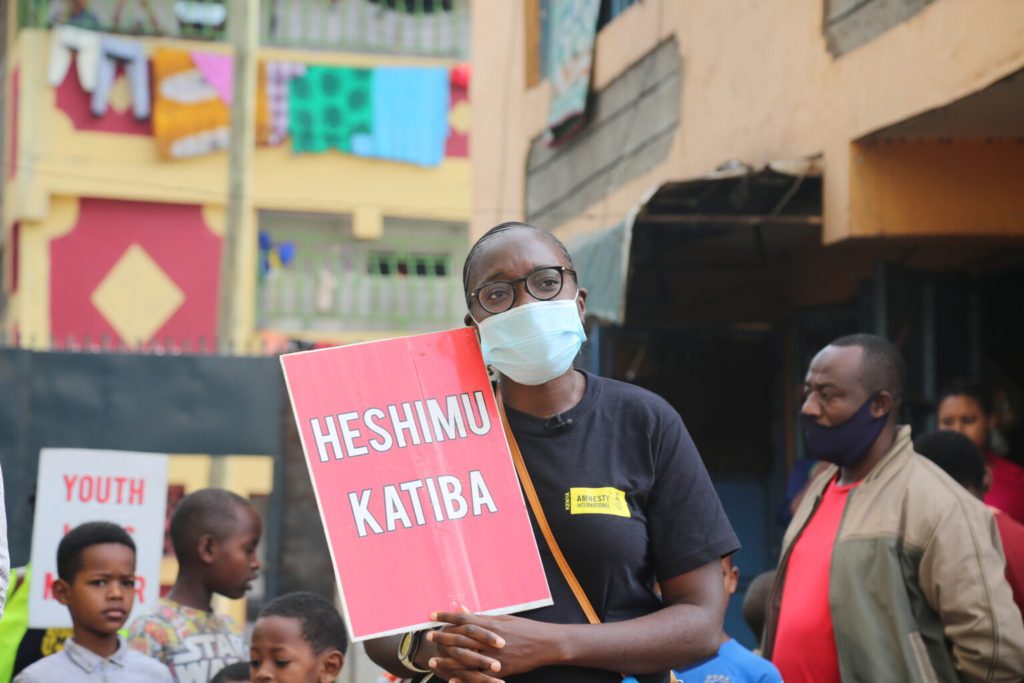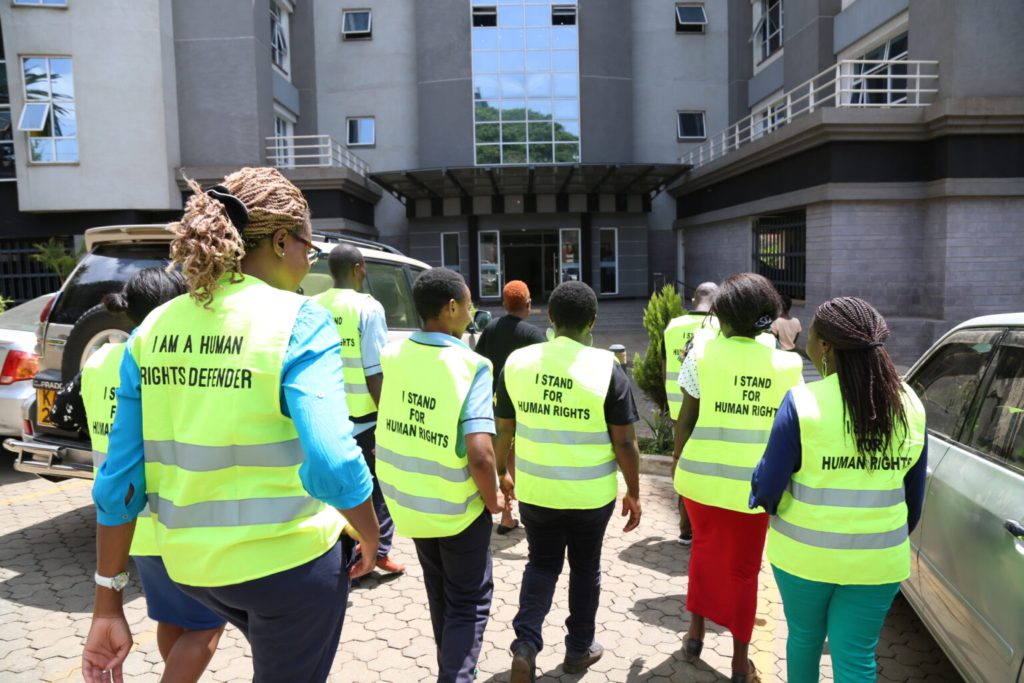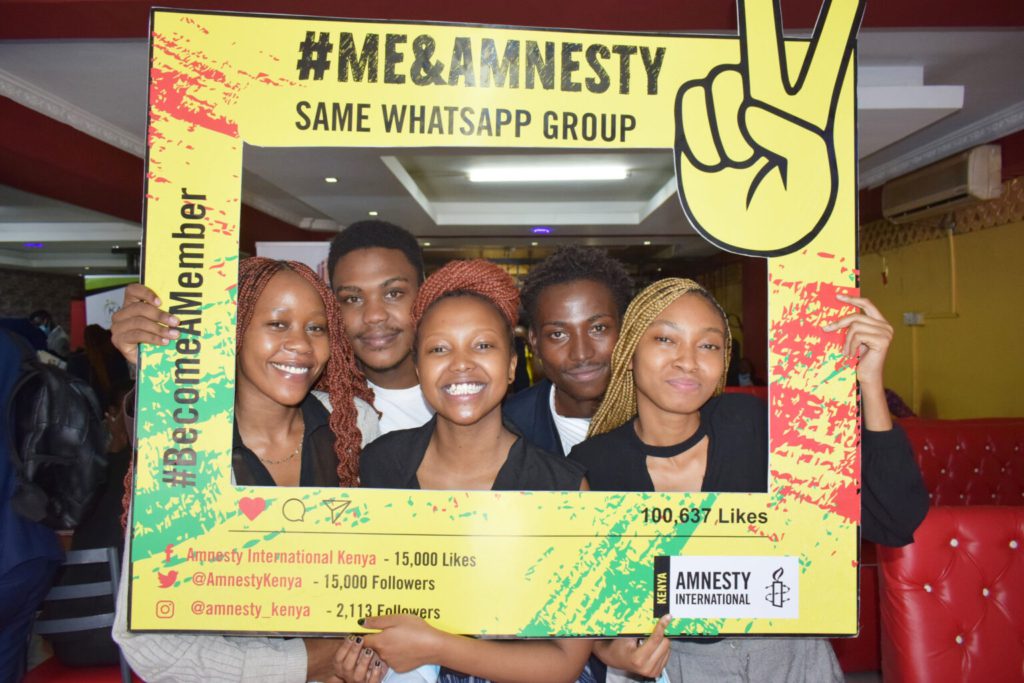A Decade of Amnesty International Kenya 2012 – 2022
Change is inevitable, the young Karimi Nduthu said a few months before he was killed in 1996. The courage of the Release Political Prisoners lobby group was at the centre of the first of three transformations that would lead to Amnesty International Kenya becoming one of Kenya’s largest, most influential, and visible movements of human rights defenders. October 2022 marks the tenth anniversary of Amnesty Kenya’s registration as a non-governmental organisation. The story starts over two decades before
Protecting from a distance: The Moi/KANU era and the 90s
After decades of protecting human rights from the London-based International Secretariat and Amnesty National Sections across the world, Amnesty organised public demands for human rights, an end to corruption and the right to protest in Kenya and worldwide in the eighties and nineties.
Kenya was its darkest in the 1980s and 1990s. The state was incapable of protecting its public resources, and the Presidency operated with neither public nor legal accountability. Instructed by the Executive, the Judiciary participated in the cannibalising of Kenyan law. Most State Officers from that period remain tainted to this day by their silence or complicity in thousands of enforced disappearances, detentions without trial, torture, and lengthy jail terms.
Hundreds chose not to confront the violence, suffering and destruction that came with the one-party system. Dissent and acting in the public interest were dangerous paths to take at the time. Amnesty adopted over a hundred men and women as prisoners of conscience in Kenya and globally over the same period. Most sacrificed their studies and careers, and some, like Karimi Nduthu, their lives. Many are unknown to today’s generation.
In celebrating Amnesty Kenya, we celebrate the contribution and resilience of students, workers, journalists, business owners, lawyers, doctors, and other Kenyans from all walks of life. Their powerful choices earned them the Amnesty status of prisoners of conscience. Collectively, they sought to create a conscience country. Our Circles of Conscience, today’s BRAVE activists, and the nation owe them for the freedoms and rights we currently enjoy in our constitution.
Most Kenyans today would agree that defending the right to dissent and publicly protest comes at a great personal cost. In the 1980s, this anxiety and fear grew into a dragon that momentarily consumed the entire society. As we remember the sacrifices of the few captured in former political prisoner of conscience Wanyiri Kihoro’s insightful biography “The Price of Freedom”, it is worth asking why we know so little from this aspect of our history.

Jail me if you like. But change, like death, is inevitable
Karimi Nduthu
Expanding Constitutionalism and Freedoms

The Constitution has the capacity to protect itself
Diana Gichengo
Post-election violence accelerated the call for a new constitutional order in 2010. Decades of organised campaigning and advocacy resulted from greater public accountability, a devolved governance system, and expanded freedoms.
Building on years of member-based organising, two Amnesty campaigns were publicly introduced to stop gender-based violence and forced evictions in the informal settlements. The seeds of a future Amnesty Kenya were therefore planted first by members and among Kenya’s most discriminated and marginalised communities. The Sexual Offences Act (2006) was a product of this early work before our registration in 2012.
Two years after the 2010 constitution fundamentally changed Kenya forever, Amnesty Kenya was registered as a non-governmental organisation. Despite one of the most progressive constitutions in the world, the deadly venom of inequalities, impunity, and discrimination fuel hopelessness for millions. 52% of Kenyans do not believe that there is equality under the law. Most Kenyans believe the biggest risk to their lives is the denial of health services, unlawful police killings and harassment, hunger, and restrictions to freedom of expression. Twice as many Kenyans fear police brutality than poverty.
It is here that Amnesty Kenya has invested its investigative research and campaigns for a decade. We have rallied with families and allies to protect and demand justice for victims of extrajudicial executions, identity-based profiling, forced evictions, and patient detentions, among other rights violations. From the communities of Kiamaiko to Kianjokoma, the Sengwer to Soweto, Deep Sea and Kibos, we have documented, lobbied, built capacities and marched with affected communities and persons at risk.
Backing the Brave

Unlike many human rights organisations, Amnesty Kenya integrated civil and political rights with economic and social rights, avoided an anti-state approach and consciously expanded the movement to all sectors of Kenyan society. This playbook has helped to anchor our relevance and expand respect for human rights beyond our direct program impact.
Between 2018-2022, Amnesty Kenya revamped its governance framework and is now governed by a Kenyan board. We have diversified our funding by 30% and expanded our budget by 40%. We have over 1,700 paid-up members, 21,000 supporters and 65 self-governed Circles of Conscience in schools, universities, and communities nationwide.
We have deepened our relationship with the Executive, Parliament, independent agencies and constitutional commissions, civic organisations, trade unions and social justice centres. We owe all our achievements to thousands of people who have acted to promote and protect human rights, either as staff, members, partners, duty-bearers, or members of the public.
Human rights are not things you put on the table for people to enjoy. These are things you fight for, and then you protect Wangari Maathai
Amnesty at Ten and the Future

Those who today still feel a sense of importance can do something, they can support Amnesty International. They can stand up for freedom and justice Peter Benenson
While we have evolved into one of Kenya’s largest, respected and most visible human rights organisations, the next decade demands so much more from us. We must learn to do more with less and place more of our resources at the disposal of human rights defenders and allies. Through our Circles of Conscience, we can robustly engage our 47+1 county and national governments to create freedom for all, bring down the cost of living, stop dijito disinformation and identity-based discrimination. We can leverage our recognition as a national section more within the transnational movement of Amnesty International.

